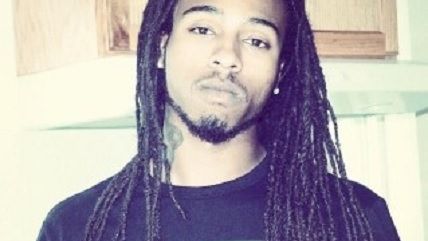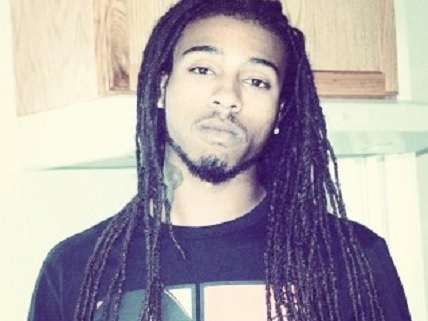How Police Killings You Don't Hear About Go Down and Why It's Easier to Throw Darren Wilson Under the Bus than Reform Police Rules


With the national attention protests over police brutality in Ferguson have received over the last week and a half, one could imagine police departments around the country being, at the very least, more self-aware of the way their actions could be misinterpreted. Perhaps they could renew their interest in transparency and communication. No such thing. Police killings continue to happen regularly, largely outside the public eye—victims are painted as security threats and without a lot of independently-verifiable evidence in such cases they tend to disappear.
Armand Bennett of New Orleans, with warrants on multiple charges of marijuana possession, weapon possession, resisting an officer, and property damage, was shot in the head last Monday during a traffic stop. He suffered critical but not life-threatening wounds. Police claim Bennett tried to fight them while Bennett's brother, also in the car, says the shots were unprovoked—familiar competing narratives in cases like this. But does the police department have a responsibility to act in a way that won't damage its believability? Doesn't seem so. The police department didn't acknowledge its role in the shooting of Bennett until the Times-Picayune reported it. The New Orleans paper explains:
NOPD Superintendent Ronal Serpas apologized to the public, calling the failure to disclose the shooting "a complete snafu."
Serpas said at a news conference that he "personally authorized" a news release at noon Monday, about eight hours after the officer-involved shooting injured a man wanted on non-violent felony warrants. But the release was never sent, and the chief didn't mention the incident to reporters at two news conferences since the shooting, on Monday and Tuesday. "Clearly, it fell through the cracks," he said.
Unbelievably, when stuff falls through these cracks it almost always benefits the police department. In Ferguson, Officer Darren Wilson is facing a grand jury investigation over his shooting of Michael Brown last Saturday. His department has no dash cams—it had body cameras but hadn't deployed them yet. Missouri's governor, Democrat Jay Nixon, has called for a "vigorous prosecution," skipping the fact-finding phase along with the mob.
There are a lot of unanswered questions about the Brown shooting, and the Bennett shooting. There are few checks and balances in places to limit police powers—cops are rarely disciplined or terminated. Their public employee privileges, coupled with their authority to use violence and the tendency by the ruling class to give them the benefit of the doubt, has left Darren Wilson fearing he's going to be made an example out of.
Rather than tackle the kind of union and other police reforms necessary to bring transparency and accountability to police departments around the country, it seems making an example out of Wilson is exactly what establishment activists and politicians want to do. It may please Brown's mother and many Ferguson residents, but it won't change the rules police operate under. It may even serve to have a temporary chilling effect on cops. But the solution to police violence isn't to rush cops who kill through the justice system, denying them theirs because of a misunderstanding of what justice for the victim means, it's to give police departments and local governments the ability to fire problem cops—cops who behave inappropriately as well as cops who damage the force's reputation. Repealing laws that criminalize consensual non-violent behavior is paramount too. Every cop, even murderous ones, deserve due process in the criminal justice system. They just don't deserve it for their jobs. Cops concerned about what's happening to Darren Wilson and worried it might happen today ought to be the first advocates for rolling back protections that prevent the worst of them from being terminated.


Show Comments (35)